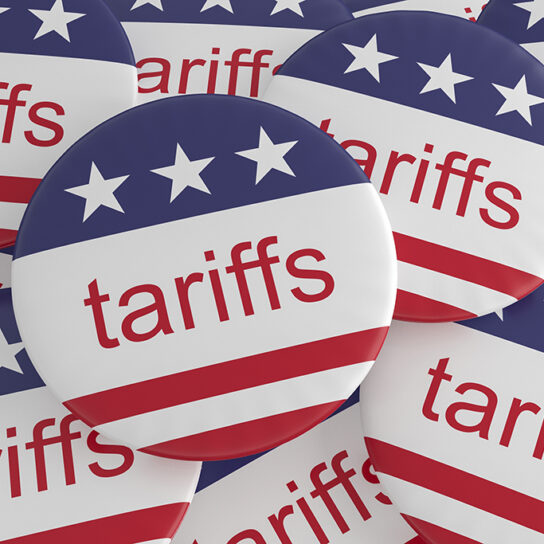In a televised address on 2 April 2025, President Trump has announced the imposition of the anticipated ‘reciprocal’ tariffs on global exports into the United States (US), together with some of the reasons for those tariffs being imposed.
Byline: Andrew Hudson
Our latest news and insights
A collection of articles, case studies and media releases highlighting the latest in legal news and at Rigby Cooke Lawyers.
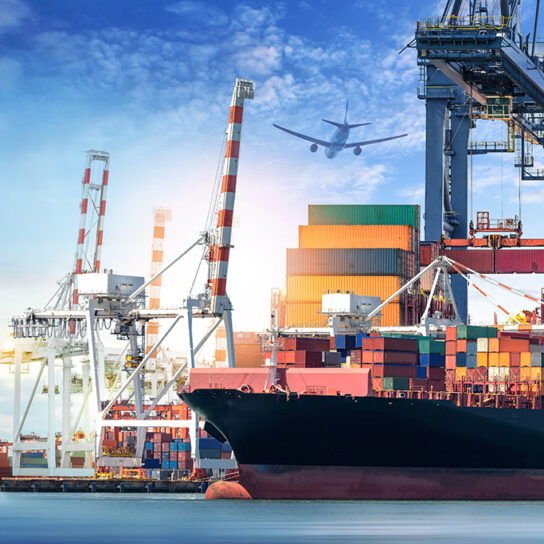
Welcome to 2025 and more challenges in the supply chain
A version of this article was published in the February/March 2025 edition of The DCN.
Each year, the global supply chain experiences a series of unexpected disruptions, requiring those in the supply chain to adapt quickly to manage them. In this article, Andrew Hudson reflects on the global supply chain challenges of 2024 that will shape the new year.
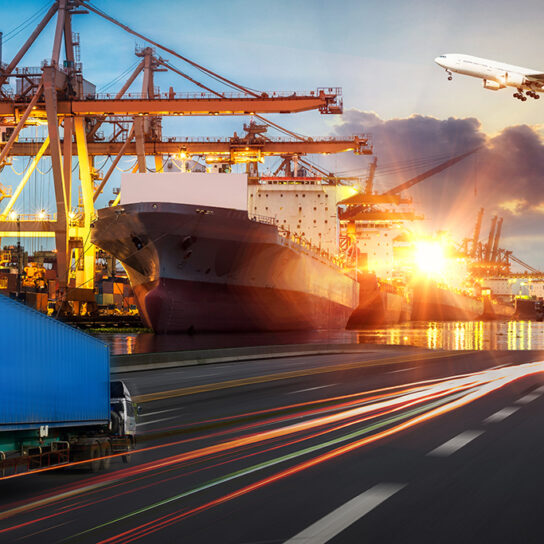
New inquiry into transport security legislation amendments
While heavily regulated, the transport and logistics industry continues to experience increasing and expanded security threats. The most recent threats are cyber threats, smuggling of tobacco, vapes and other illicit substances. Late last year, new legislation was introduced into Parliament that reflects the need for increased security in the transport industry.

“It’s my first day back”— What President Trump did when inaugurated again
A version of this article was published in January 2025 in The DCN.
The first day of ‘Trump 2.0’ marked a bold re-entry into power. While his inauguration speech reaffirmed his commitment to promises to make America great again, the day itself was filled with significant and controversial decisions that could shape the course of his second presidential term.

Trump 2.0 — be alert, not alarmed!
A version of this article was first published in December 2024/January 2025 edition of The DCN.
In our latest Customs & Trade alert, Andrew Hudson shares his thoughts on navigating the trade world with a new Trump administration – which he calls Trump 2.0.
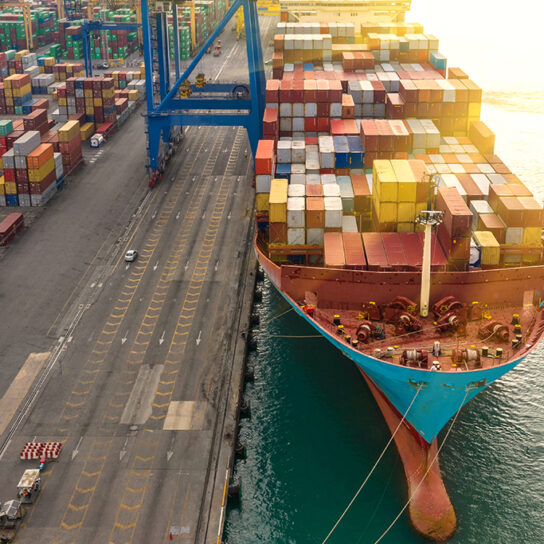
Possible ILA strike in the US becomes more likely from 15 January 2025
On 1 October 2024, a short strike commenced in the United States (US) by the East Coast and Gulf Coast dockworkers represented by the International Longshoremen’s Association (ILA). The strike was the first large–scale strike in nearly 50 years, halting the flow of approximately 50 percent of the US ocean shipping. It took place after negotiations for a new labour contract, which dealt with wages and terminal automation project issues, collapsed. The ILA does not appear keen to adopt new automation issues, viewing them as a threat to ongoing work of its members.
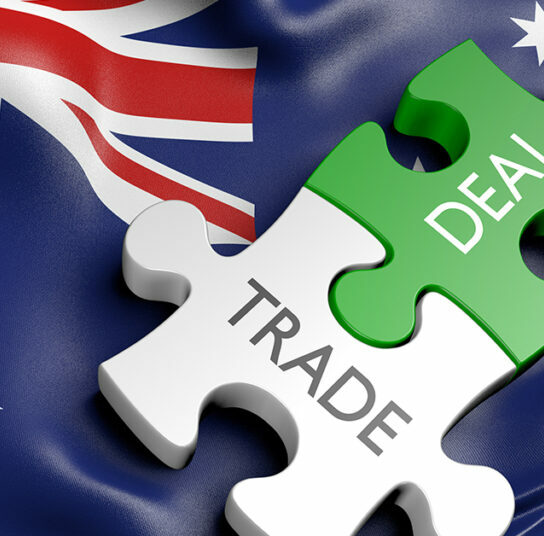
Australia inks new FTA deal with UAE
A version of this article was first published in the The DCN in October 2024.
As many readers would be aware, Australia has entered into several free trade agreements (FTA) whether bilateral, regional or plurilateral. Many of the FTAs have led to improvements in trade outcomes, including the recent FTAs with the United Kingdom and the first stage of the FTA with India.

What’s the fuss on de minimis?
A version of this article was first published in the The DCN in September 2024.
Australia’s experience in dealing with de minimis transactions has been complicated and is now subject to review by industry and border agencies. Andrew Hudson, Partner — Customs & Trade, looks at Australia’s experience in dealing with low-value transactions and practices overseas.

Around the nation with IFCBAA CPD forums
A version of this article was first published in the print edition of The DCN for August 2024.
Trade law expert Andrew Hudson shares a roundup of matters discussed at recent CPD forums throughout Australia.

Further tightening of the regime for licensed customs brokers
A version of this article was first published in the print edition of The DCN for July 2024.
In our latest Customs & Trade alert, Andrew Hudson summarises some of the relevant provisions to effect changes for licensed customs brokers.
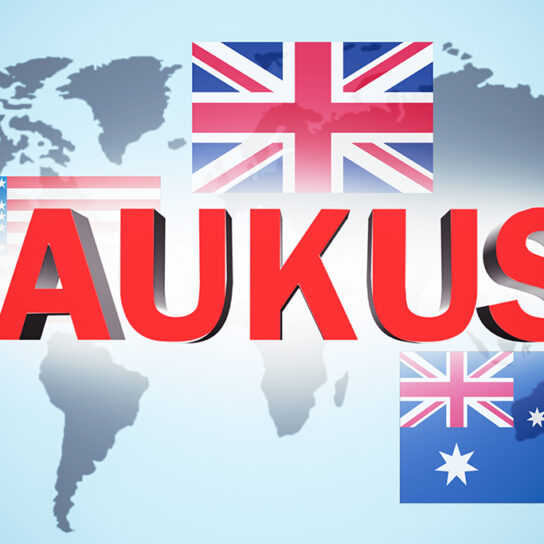
AUKUS in focus
A version of this article was first published by The DCN in June 2024.
In an industry replete with acronyms, the AUKUS acronym has gained significant use and attention across the last few years.
With AUKUS now established and its members implementing legislative and administrative arrangements to facilitate the intended outcomes of the partnership, it is timely to examine some of its initiatives.
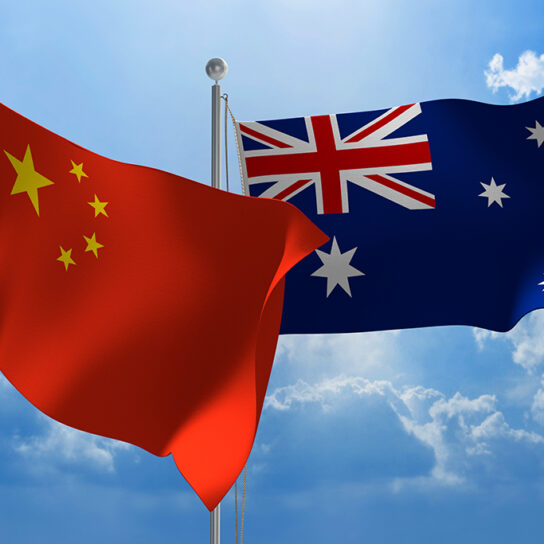
An update on the Australian trade agenda with China
A version of this article was first published by The DCN in May 2024.
The relationship between Australia and China is a complex one, with the two countries having maintained common interests in trade.

The supply chain compliance agenda
A version of this article was first published by The DCN in April 2024.
In a recent Customs & Trade alert titled Modernising the trade system, we wrote about some prospective measures which would assist to facilitate and modernise trade. In the article, it was noted one of the areas in which the modernisation was required was in the form of the regulation applying at the border as the compliance burden has continued to increase for those involved in the international supply chain.
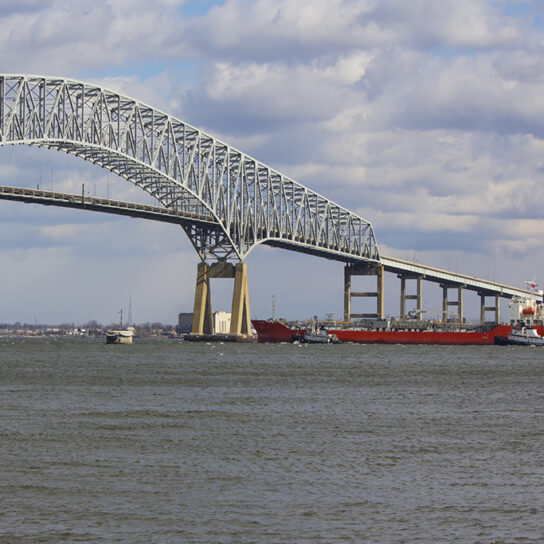
Baltimore bridge collapse will strain but not break the international supply chain
The recent collapse of the Francis Scott Key Bridge in Baltimore due to the collision of a container ship, which led to the tragic deaths of six people working on the bridge, has caused some disruption to that part of the international supply chain using the Port of Baltimore.
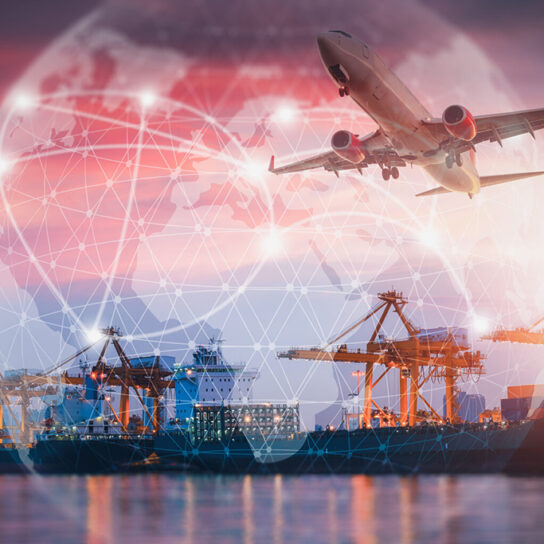
Modernising the trade system
A version of this article was first published by The DCN in March 2024.
As readers would be aware, ‘compliance’ is a term embedded in the international supply chain. However, it is not exclusively reserved to the international supply chain; it is a term used in every aspect of the commercial world and the laws and other regulations governing the commercial world.

A look at last year and a look ahead
A version of this article was first published by The DCN in February 2024.
Twenty twenty-three was the first full year after the restraints on trade imposed by the covid-19 pandemic and the first full year in power for our new federal government. Many things moved, yet many issues remain unresolved. Trade law expert Andrew Hudson outlines some of the highlights for 2023 and predictions for 2024.
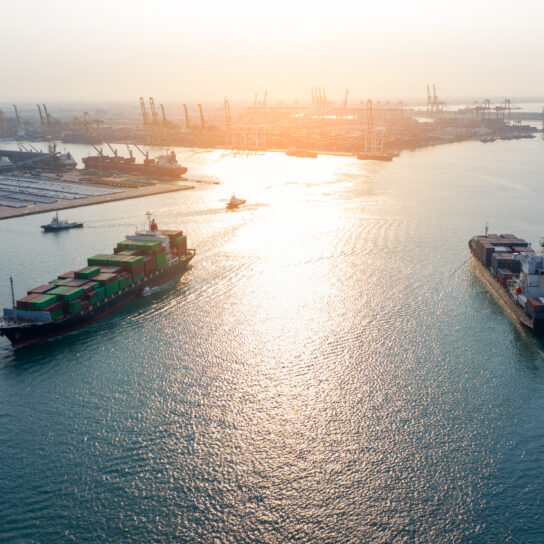
The importance of regional trade agreements for greater trade facilitation
A version of this article was first published by FIATA in January 2024.
The World Trade Organization (WTO) Trade Facilitation Agreement (TFA) came into effect on 22 February 2017 following its ratification by two–thirds of the WTO membership. It is widely recognised for its approach to enhancing trade outcomes which is not wholly dependent on reduction in tariffs or changes to market access but which requires the movement, release, and clearance of goods, including goods in transit. The TFA also includes measures to encourage all agencies operating at the border (including customs agencies) to cooperate on their regulation.
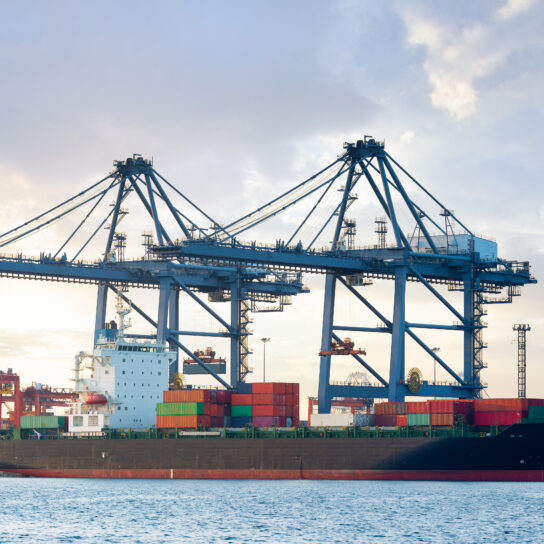
New interruptions to sea cargo create further uncertainty for industry
Luckily, Santa uses air cargo for delivery of his presents as international sea cargo experiences new delays, both in the use of the Panama Canal and in movement through the Red Sea and the Suez Canal.
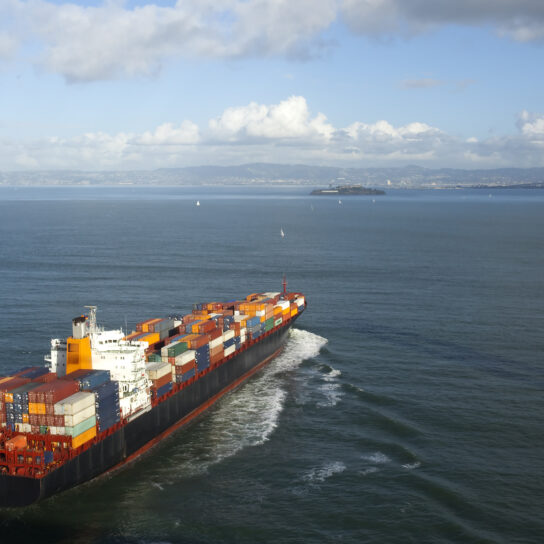
MYEFO and its importance for the funding of trade simplification initiatives
On 13 December 2023, the federal government released its 2023-24 Mid-Year Economic and Fiscal Outlook (MYEFO). While it is a report on progress following the budget from May 2023, in many ways it is also a half-year report card on the economic state of the nation compared to the anticipated outcomes set out in the previous budget. In general terms, the response to this MYEFO has been positive with the economy appearing to be in a better state than had been anticipated.

The EU free trade agreement — dead or just resting?
A version of this article was first published by The DCN in December 2023.
In a media release dated 30 October, Trade Minister Don Farrell confirmed that negotiations with the European Union (EU) had reached an impasse with attempts to conclude negotiations on the free trade agreement (FTA) with the EU in the margins of the G7 meetings in Osaka having failed.
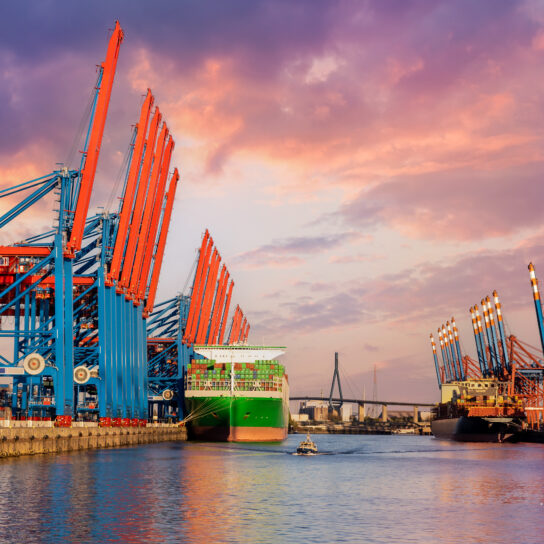
The end of the EU’s CBER: Consequences for the Australian supply chain?
A version of this article was first published by The DCN in November 2023.
The international supply chain is a complicated and expensive space. Aircraft, container and bulk vessels, airports, cargo, port and stevedore infrastructure require massive investments of time and finance to be planned, commissioned, constructed, and put into operation.

Three recent case decisions relating to customs, trade and tax you need to know about
Three recent case decisions, two handed down by the Federal Court of Australia (Federal Court) and a third by the Administrative Appeals Tribunal (AAT), will be of interest to those who may deal with sanctions, GST exemptions and customs duty issues relating to proper tariff classification of imported goods.
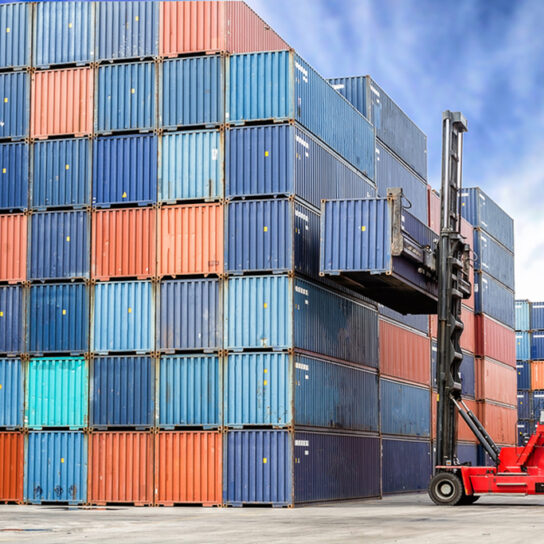
Assessing the impact of the corporate multiplier
A version of this article was first published by The DCN in October 2023.
All members of the Australian supply chain are subject to compliance activity by the Australian Border Force (ABF) and other agencies. On many occasions, after a compliance assessment is completed, the ABF will conclude with details of errors and/or duties due to be paid along with reference that an infringement notice (or notices) may also be issued, inviting the recipient to provide reasons why such a notice should not be issued.

The new UK Electronic Trade Documents Act comes into effect
One of the key initiatives of the current international reforms in trade facilitation and modernisation is the move to ‘digitise’ the documents used in the supply chain leaving behind centuries of practice relying on use of certain paper documents.
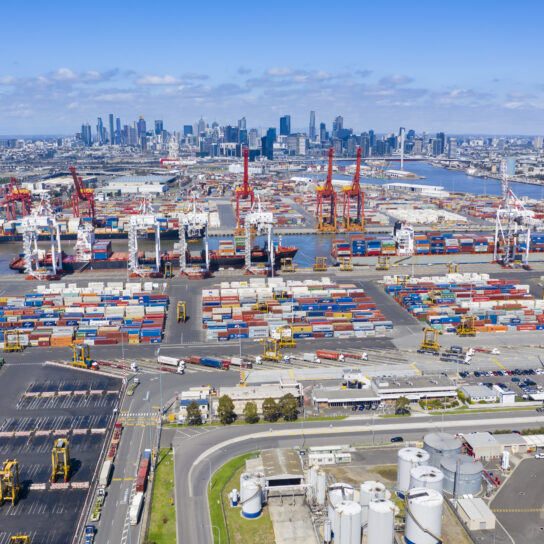
Importing goods: Overview (Australia)
This Note has been reproduced from Practical Law with the permission of the publishers.
As published by Practical Law and reproduced with their permission, this Note authored by Andrew Hudson, Partner – Customs & Trade, outlines the key requirements and considerations for importing goods into Australia, and the legislation and regulations which govern this. It also highlights opportunities for importers to eliminate, minimise, defer, or recover customs duties. The Note explains the government entities responsible for enforcement and the procedures for challenging decisions by the ABF, DAFF, and other agencies operating at the Australian border.
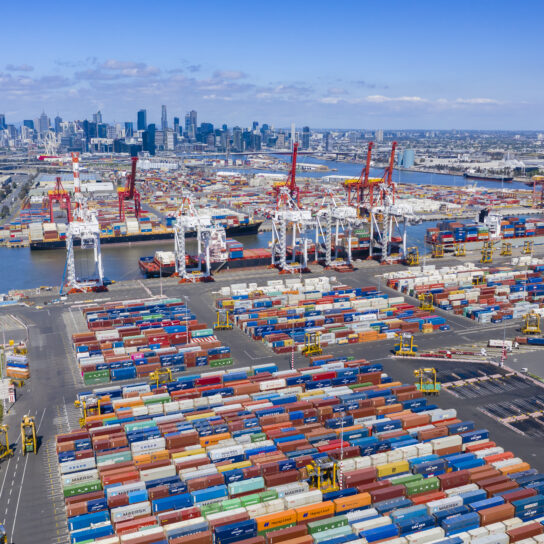
Supporting the ongoing work of the Simplified Trade System Taskforce
The proposed reforms of the Simplified Trade System Implementation Taskforce (STS Taskforce) have attracted significant attention, largely as a result of the Simplified Trade System Summit, the release of the Simplified Trade System Consultation Paper (which received 29 responses) and, most recently, the publication ‘STS Progress and Opportunities’ released on 29 August 2023.
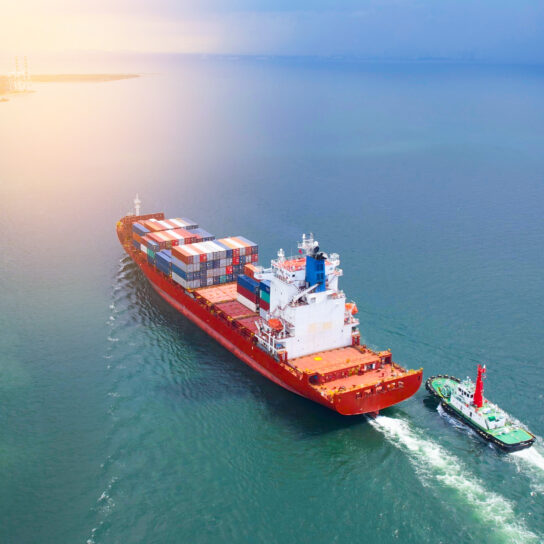
The costs of trade assistance
A version of this article was first published by The DCN in September 2023.
On 20 July 2023, the Productivity Commission (Commission) issued its Trade and Assistance Review 2021-22.

The Australian Parliament passes Customs ‘Controlled Trials’ legislation — the ‘regulatory sandbox’ comes ever closer
The Customs Legislation Amendment (Controlled Trials and Other Measures) Bill 2022 (The Bill) was passed by the Australian Parliament yesterday, which will now form part of the ‘Simplified Trade System’.
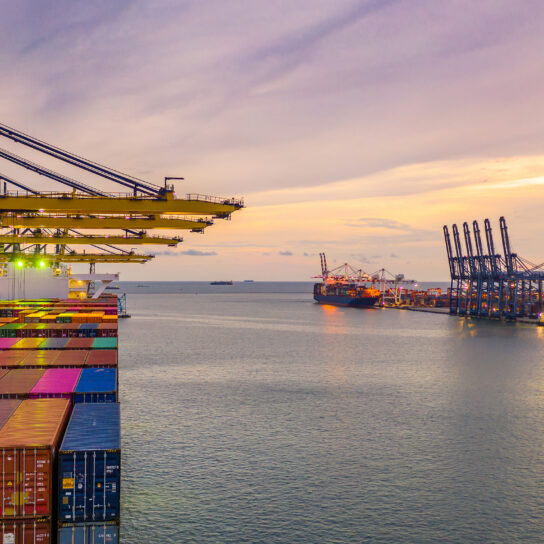
The NACC and its implications for the transport and logistics industry
On 1 July 2023, the Australian government established the National Anti-Corruption Commission (NACC) under the National Anti-Corruption Commission Act 2022 (NACC Act) to combat corruption and lack of transparency within the federal government and address growing public concerns about corruption of public officials.
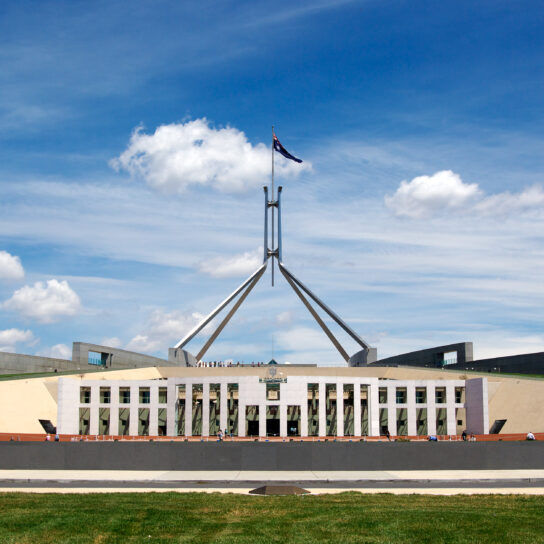
Getting the NACC
On 1 July 2023, the federal government established the National Anti-Corruption Commission (NACC) as Australia’s new federal anti-corruption body. The creation of this new body with wide-ranging powers was the fulfilment of the Albanese government’s election promise to address transparency and corruption issues within the federal government and its various agencies and institutions.
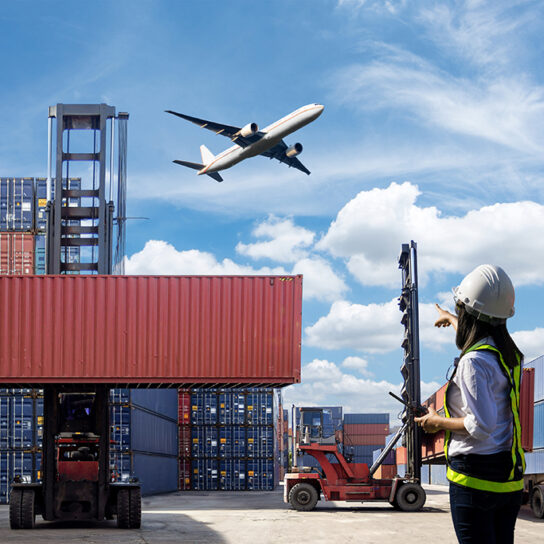
The EU releases details of its custom reforms. Lessons for Australia’s STS reforms?
The European Union (EU) has recently released details on its new proposed customs reforms. The proposed reforms will undoubtedly revolutionise the relationship between customs and the private sector, and involves developing new processes for reporting the movement of goods through the supply chain, placing an emphasis on facilitating trade for trusted parties in the supply chain.

New trade sanctions on Russia announced at G7 Summit
During the recent 2023 G7 Summit held in Hiroshima, Japan, from 19 to 21 May, several participating countries announced a range of new sanctions and export controls to be imposed on Russia, including the United States (US) and United Kingdom (UK).
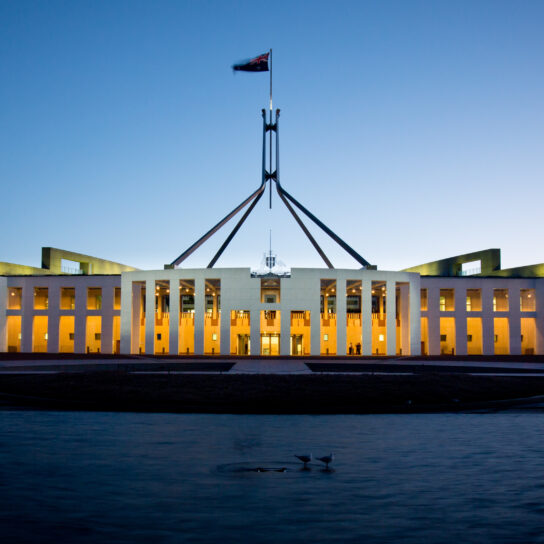
Federal Budget 2023-24 — Overview of trade, logistics, manufacturing and biosecurity measures
On 9 May 2023, the Australian Federal Treasurer delivered the Australian Federal Budget for 2023-24 (Budget).
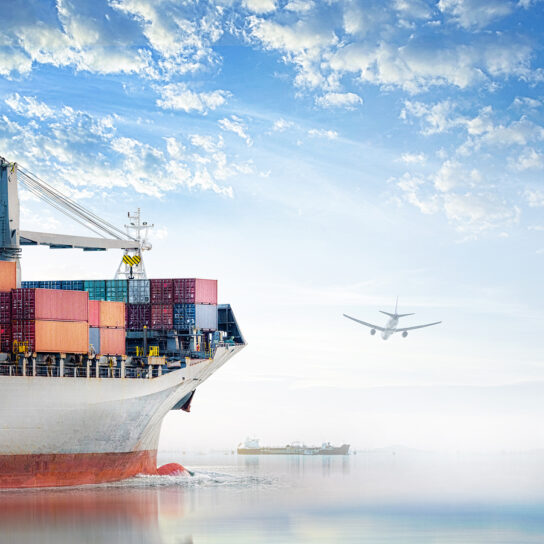
A matter of perspective
A version of this article was first published by The DCN in February 2023.
Andrew Hudson, Partner of Customs & Trade at Rigby Cooke Lawyers, recently returned from a two-week visit to the European Union (EU), the United Kingdom (UK) and the United States (US). This was Andrew’s first substantive trip overseas since the Covid-19 pandemic. It allowed him to reconnect in person with overseas clients and engage with representatives of the Australian and Victorian governments to discuss initiatives and opportunities overseas.

Changes to contracting in the Australian supply chain?
A version of this article was first published by The DCN in March 2023.
The international supply chain has experienced significant turmoil across the past few years from the combined effects of the Covid-19 pandemic, the conflict in Ukraine and the trade disputes between China and many developed nations.
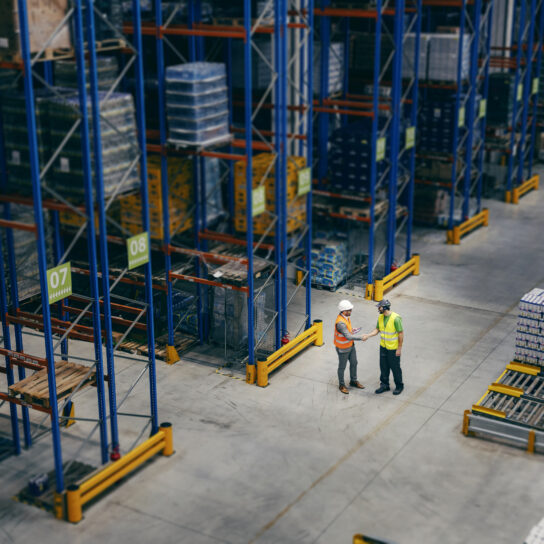
Government proposals to further tighten controls on licensed customs brokers
The types of controls imposed on those in the supply chain who are licensed by the Australian Border Force (ABF) or other government agencies is a contentious topic. There has been extensive commentary on the obligations imposed, and the significant increase in obligations imposed, on licensed customs brokers (LCBs).
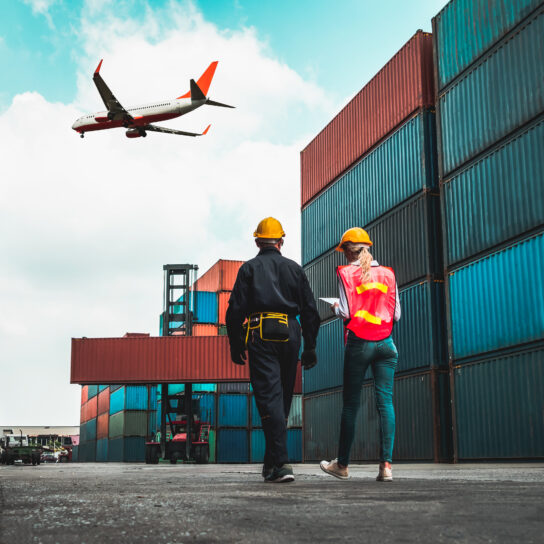
Change in global trade attitudes and supply chain challenges
A version of this article was first published by The DCN in April 2023.
In recent times, the global supply chain has experienced a series of unanticipated strains. The combined effect of the Covid-19 pandemic, shipping congestion, protectionist political actions, lack of product and the conflict in Ukraine caused many in the supply chain to question how global trade may be conducted in the future.

Review of Australia’s Autonomous Sanctions Framework
Over the past years, the issue of sanctions globally has come to the forefront of public and government discussion largely due to the ongoing conflict in Ukraine. Many businesses that had never previously encountered the issue were forced to deal with sanctions compliance matters.

What will replace the Administrative Appeals Tribunal (AAT)?
On 16 December 2022, Attorney-General Mark Dreyfus announced the federal government’s plan to abolish the Administrative Appeals Tribunal (AAT) and replace it with a new administrative review body. The reasons for the proposed abolition were that the AAT had become too politicised through politically motivated appointments of AAT members, which rendered the tribunal dysfunctional.
A version of this article was first published by The DCN in February 2023.

New legislation sets agenda for Customs & Trade, and Transport industries in 2023
The Australian Federal Parliament has been busy with several critical issues since coming into office in the second half of 2022, including the introduction of new legislation which will be of interest to many in the Customs & Trade, and Transport industries.
A version of this article was first published by The DCN in January 2023.

Where to for Australia on the trade single window?
The European Commission recently passed legislation that will establish a framework for a trade single window (TSW), which raises the question ‘what is Australia doing?’
A version of this article was first published by The DCN in December 2022.
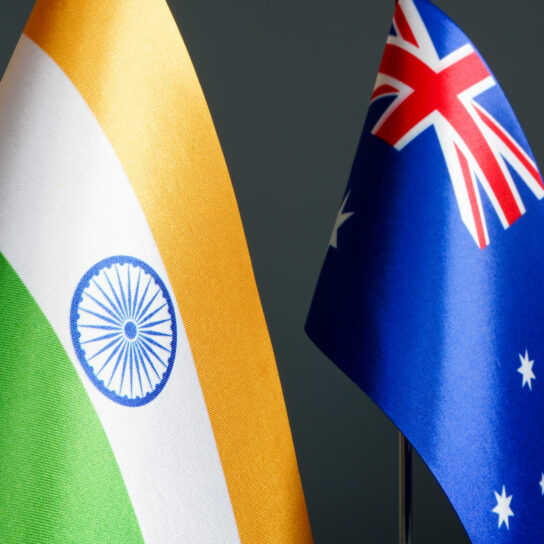
Commencement of the first stage of the free trade agreement with India now confirmed
The Australian and Indian governments have confirmed that they have completed all necessary domestic ratification processes and that the Australia-India Economic Cooperation and Trade Agreement (AI-ECTA) will enter into force on 29 December 2022.
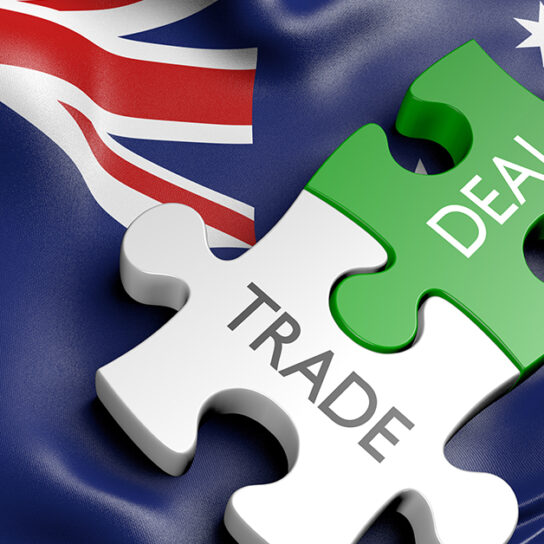
Preparing for the near future for licensed customs brokers and freight forwarders
A version of this article was first published by The DCN in November 2022.
With 2022 almost at an end, there are already a few issues arising for licensed customs brokers and freight forwarders going into 2023.

The United Kingdom introduces legislation to advance paperless trade
Currently, there is significant work being conducted around the world aimed at modernising and facilitating trade. Part of that work includes attempts to ‘digitise’ the process by moving away from the use of paper-based trading documents in the supply chain and the adoption of ‘blockchain’ processes.

Another trip around the nation for IFCBAA CPD forums
A version of this article was first published by The DCN in October 2022.
Andrew Hudson, Partner in our Customs and Trade practice, discusses the judgements and legal developments addressed at the recent International Forwarders and Customs Brokers Association of Australia (IFCBAA) continuing professional development (CPD) forums.

Further Productivity Commission research casts light on our trade performance
A version of this article was first published by The DCN in September 2022.
Andrew Hudson, Partner in our Customs and Trade practice, looks at recent reports from the Productivity Commission (PC) on Australia’s trade performance.
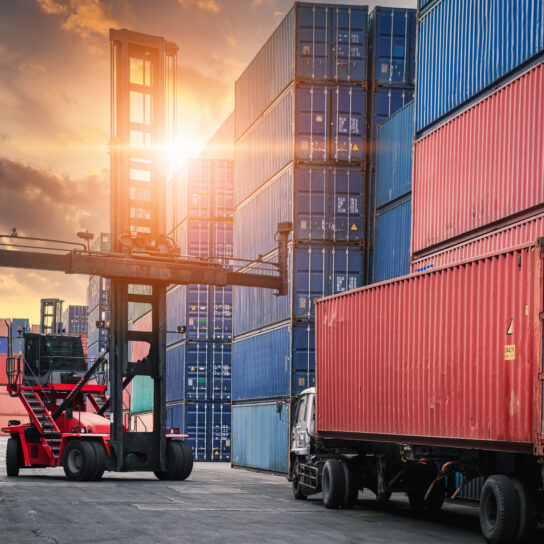
Productivity Commission releases its draft report entitled ‘Lifting productivity at Australia’s container ports: between water, wharf and warehouse’
The Productivity Commission (PC) has finally released its draft report as part of its inquiry regarding the Australian Maritime Logistics System.
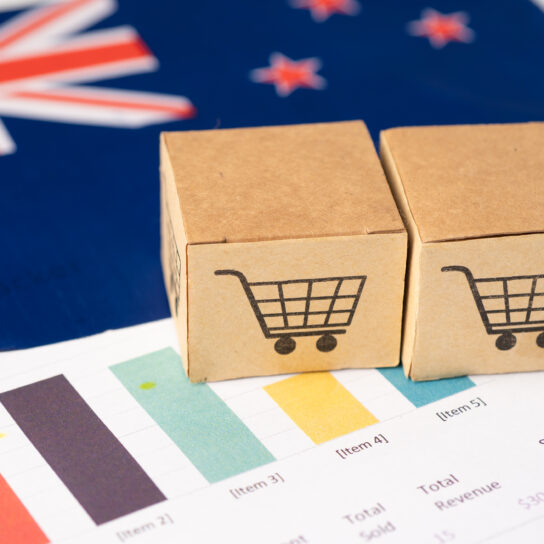
The outcomes of the new NZ-EU free trade agreement
A version of this article was first published by The DCN in August 2022.
New Zealand (NZ) has landed its free trade agreement (FTA) with the European Union (EU) just ahead of Australia’s deal with the EU, writes Customs & Trade law expert Andrew Hudson.
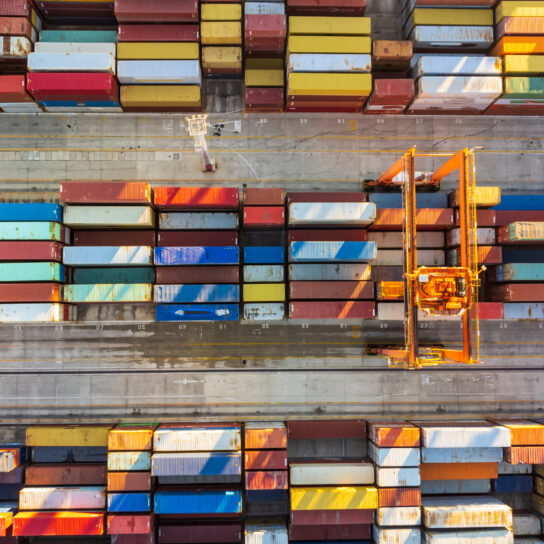
Productivity Commission finds costs of collecting nuisance tariffs exceed revenue collected
On Friday 5 August 2022, the Productivity Commission (PC) released its results of two major studies which assessed the level of government assistance to trade and industry for 2020-2021, namely the Trade Assistance Review and the Nuisance Costs Research — a separate, although related research paper into the nuisance costs of tariffs.
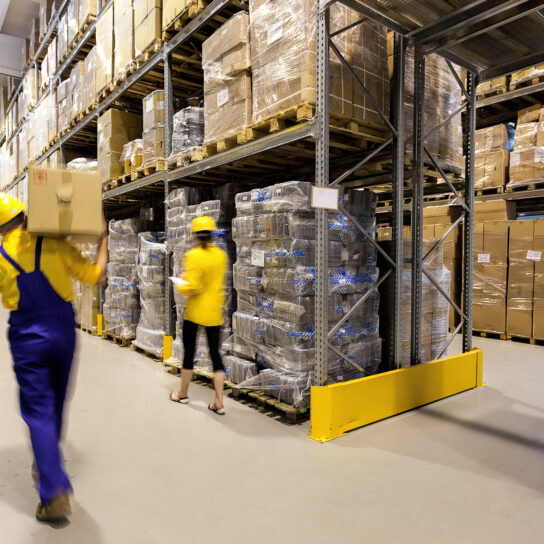
The Full Federal Court addresses liability for duty payable on goods in licensed places
We have previously written on the difficult position of those operating and working in premises licensed by the Australian Border Force (ABF) for the holding of goods pending entry into home consumption, which goods are still treated as being subject to ‘customs control’.

Who goes there? ABF to tighten the ‘fit and proper’ regime further
A version of this article was first published by The DCN in July 2022.
Customs & Trade law expert Andrew Hudson discusses the tightening of the ‘fit and proper’ regime at licensed places.

A mixed week for news on Free Trade Agreements in the northern hemisphere
A version of this article was first published by The DCN in July 2022.
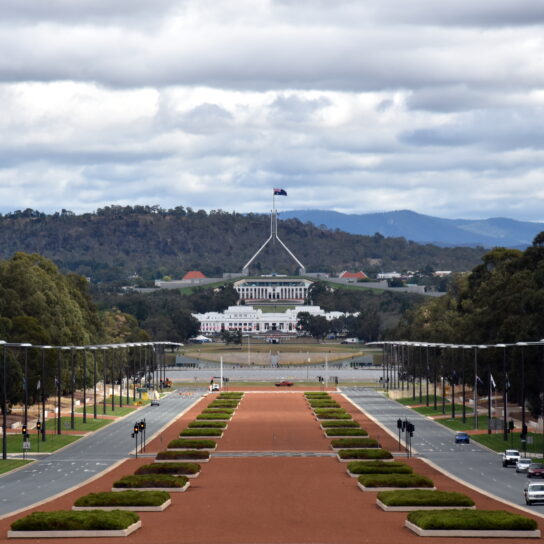
The new framework of the Federal Government operating at the border
A version of this article was first published by The DCN in June 2022.
It is difficult to determine exactly what may arise now the election has taken place, given that there was minimal commentary on trade and border issues during the election campaign.
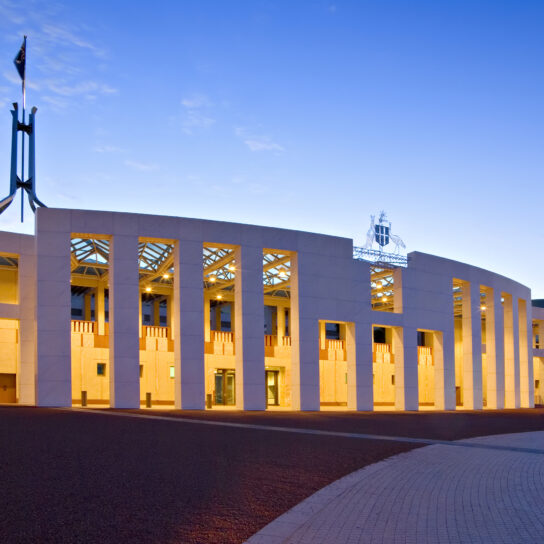
A post-election shopping list for Australian trade regulation
A version of this article was first published by The DCN in May 2022.
Andrew Hudson lists the important things the new federal government needs to pay attention to in the international trade space.
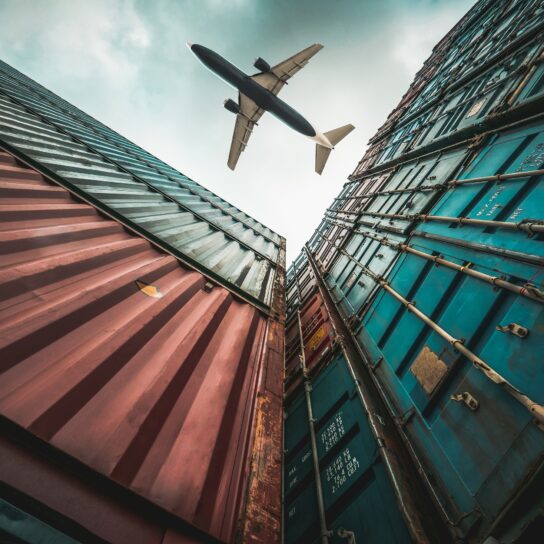
Significant developments in the Australian free-trade agenda
A version of this article was first published by The DCN in May 2022.
Customs & Trade law expert Andrew Hudson provides a summary of recent and still-under-negotiation trade pacts and analyses their significance.

The war in Ukraine and its effect on international trade
A version of this article was first published by The DCN in April 2022.
Please note that this was prepared in the middle of March 2022, before our other updates on more recent developments in sanctions and trade controls. It is provided by way of providing more detail on the background on the basis for these measures.
The war in Ukraine is upending world trade, and there is no sign of an end to the disruption, Andrew Hudson writes.
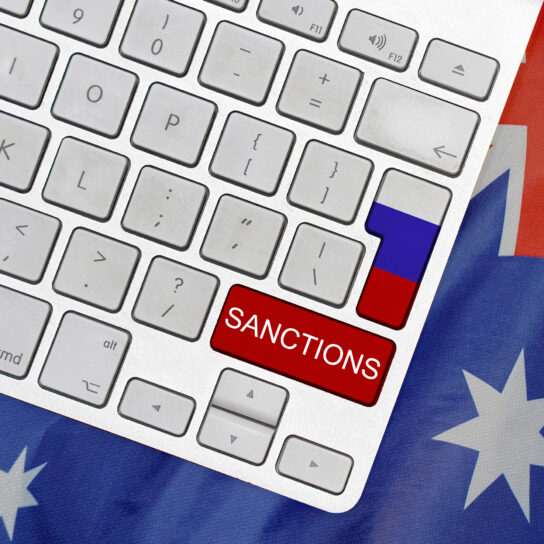
Australian sanctions and controls against Russia escalate and evolve
A version of this article was first published by The DCN on 4 April 2022. This version incudes new and updated information.
I have previously written regarding fundamental changes to Australia’s sanctions regime, from implementing United Nations (UN) sanctions through to the adoption of our own Autonomous Sanctions and more lately, the creation of the new Thematic Sanctions.
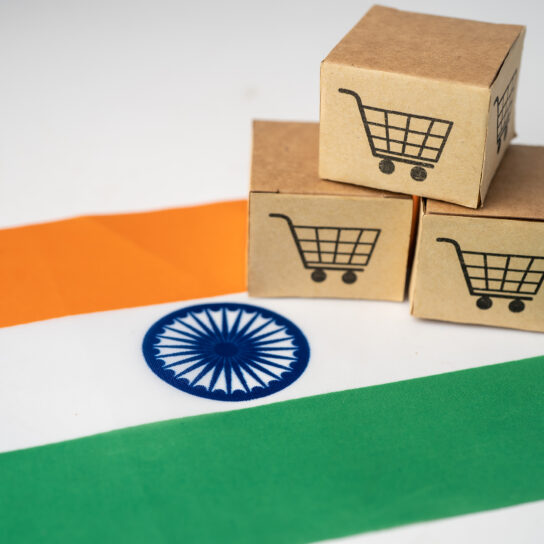
At long last, Australia seals a preliminary Free Trade Agreement with India
A version of this article was first published by The DCN in April 2022.
After a long series of false starts, Australia and India have finally completed the first stage of a two-stage process that will result in a full Australia-India Comprehensive Economic Cooperation Agreement (AICEPA) towards the end of 2022.
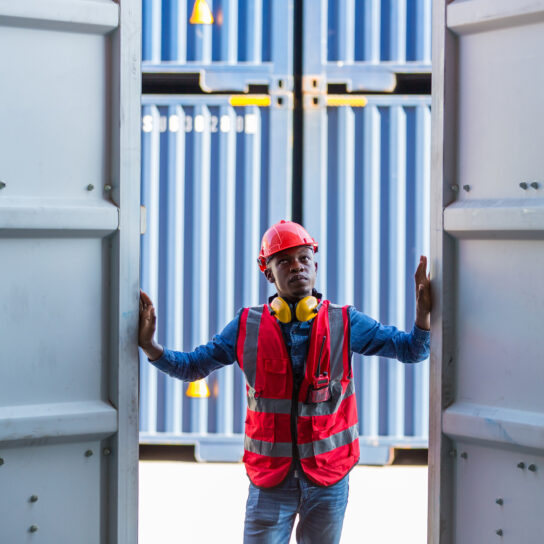
Federal Budget 2022-23 – overview of customs and trade related measures
On 29 March 2022, the Treasurer handed down the Australian Federal Budget for 2022-23 (Budget).

The rise of ESG issues in the supply chain
A version of this article was first published by The DCN in March 2022.
Customs & Trade law expert Andrew Hudson takes a look at the increasing importance of environmental, social and governance (ESG) considerations and the consequences for industry.

Sanctions here, there and everywhere – the consequences of the Ukraine crisis
The Russian military invasion of Ukraine has met almost universal opposition and condemnation from around the world through commentary, protest and by way of the imposition of economic sanctions and other restrictions by countries, including by Australia.

The evolution of our trade agenda – The past 130 years
A version of this article was first published by The DCN in February 2022 as part of the 130th Anniversary of its first edition.
Customs & Trade lawyer Andrew Hudson takes a look at how the laws governing trade in Australia have grown and changed over the years.

What sanction reform means for your business
A version of this article was first published by The DCN in January 2022.
Andrew Hudson explains what the thematic sanctions reforms passed by the Australian Parliament means for your business.
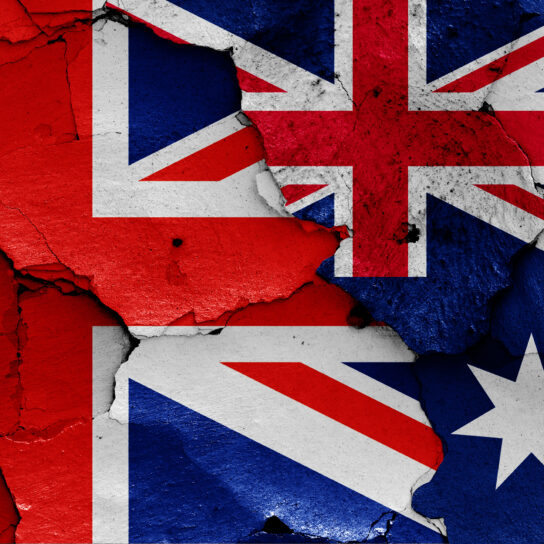
The AUKFTA is completed and signed – now for comprehension and implementation
Back in June 2021, I provided an update regarding the release of the “Agreement in Principle” between Australia and the United Kingdom (UK) as to the proposed content of the Australia-United Kingdom Free Trade Agreement (AUKFTA). The intent of releasing the “Agreement in Principle” was to demonstrate early outcomes from negotiations for the AUKFTA and maintain interest in both countries.

What else is in the customs and trade waiting room for 2022?
A version of this article was first published in DCN Magazine in December 2021.
Customs & Trade law expert Andrew Hudson takes a deep dive into what developments are on the horizon for the new year.

New “Forced Labour” Bill introduced in the House of Representatives
We have previously written on the topic of legislation and practice overseas (especially the United States) enabling goods produced by “forced labour” to be seized at the border and destroyed.

1 January 2022 – a new year is not fun for everyone!
Many people look forward to a new year as a time for celebration. However, for importers and exporters and their service providers, including licensed customs brokers and freight forwarders, the start of the 2022 new year is a time to pay close attention to some significant changes to their regulatory regime.
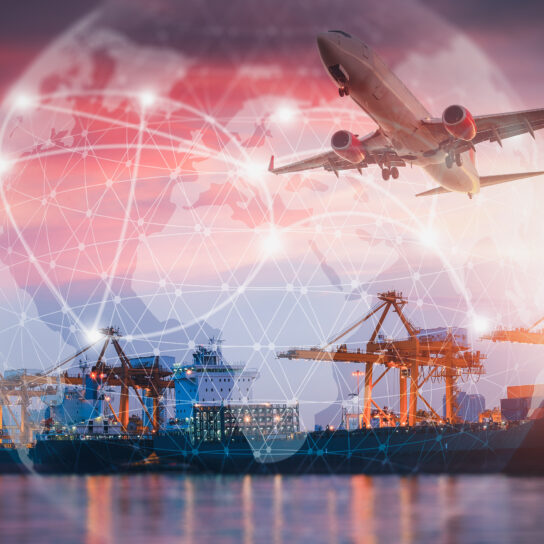
Legislation proposed for the construction of the ABF’s “Regulatory Sandbox”
Many of you would be aware that one of my professional dreams is for the Customs Act 1901 (Act) to be replaced with a new version written to modern regulatory standards. Those affected would not be relying on legislation whose origins stretch back to Federation (and even from the States Customs Acts before Federation).
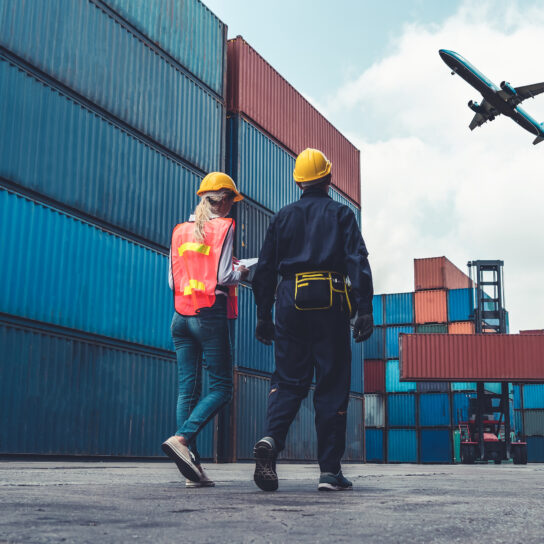
The implementation of the RCEP comes ever closer
This article was first published in October by The Daily Cargo News.
The fact that the Regional Comprehensive Economic Partnership Agreement (RCEP) has survived the COVID-19 pandemic and the apparent shift towards enhanced protectionism indicates that the parties still believe that there is merit in a rules-based multilateral agreement to facilitate trade.

GST on low–value imports held to account
Many of those in industry will remember the controversy associated with the introduction of Goods and Services Tax (GST) on “low-value import transactions” (LVT) on consignments three years ago.

The AUKFTA – not a Tim Tam for Penguin biscuit exchange
This article was first published in July 2021 by DCN.
Andrew Hudson takes us on a deep dive into the Australia-UK Free Trade Agreement (AUKFTA), examining what it means for Aussie importers and exporters.

Don’t worry – those Olympic medals aren’t subject to import duty
This article was first published on 5 August 2021 by DCN.
Only a Customs & Trade lawyer nerd who also happens to be a sports tragic would start to think about whether customs duty or Goods and Services Tax is payable on Olympic medals when brought into Australia. It would be unfortunate for the winners of the medals to try and establish the value of the medals and then whether customs duty is payable.
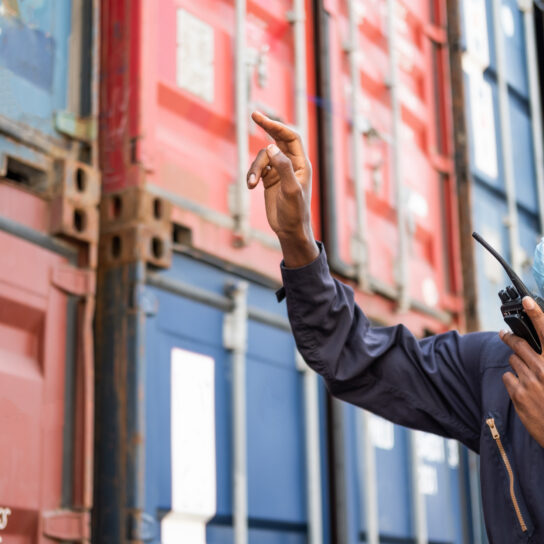
The continuing compliance agenda for Australian trade
This article was first published in July 2021 by The Daily Cargo News.
Customs & Trade law specialist Andrew Hudson offers some thoughts on the compliance focus of some of Australia’s border agencies.

The ongoing Australian trade agenda response to the COVID–19 pandemic. Open for business even with borders closed
This article was first published in June 2021 by Thomson Reuters Canada.
Despite the optimism surfacing in some quarters that the world and its economy are recovering from the COVID-19 Pandemic, recovery is far from complete and the consequences will continue to affect the world for many years. This article provides some insight into how Australia’s trade has coped and the shape of its recovery – with a little help from its friends.

Senate report pushes for restrictions on imported goods produced by forced labour
This article was first published on 22 June 2021 by Daily Cargo News.
Concerns for human rights have manifested themselves in many ways over the course of many years and led to a range of responses over that time, whether by unilateral national action or collective international action through such bodies as the United Nations Human Rights Council.

Australia and United Kingdom outline the essentials of their new Free Trade Agreement
Following a flurry of negotiations and carefully worded press releases, Australia and the United Kingdom (UK) have finally confirmed the outline of their agreement on a Free Trade Agreement (FTAs) between the two nations.
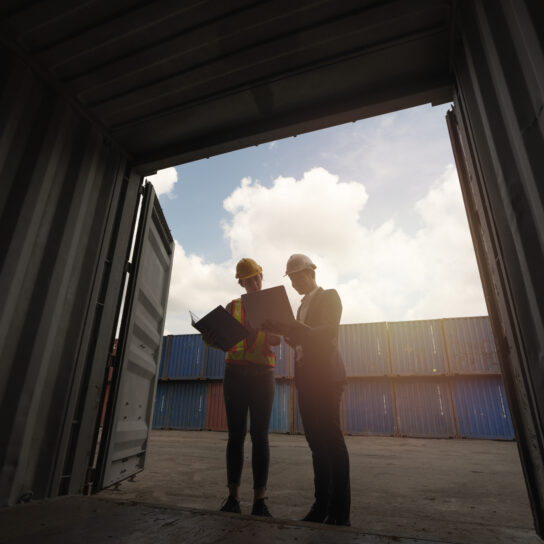
Customs & Trade: A deeper dive into the 2021-22 Federal budget
This article was first published in June 2021 by Daily Cargo News.
Customs & Trade law expert Andrew Hudson takes a close look at the latest Federal budget, with a focus on how it will affect industry.

Australian Federal Government starts work on the Simplified Trade System
This article was first published on 20 May 2021 by Daily Cargo News.
Against the background of concerns on the Federal Government’s trade facilitation agenda, the last two Federal budgets have allocated funding towards work on a “Simplified Trade System” (STS) to operate across Government agencies involved in the import and export of goods.
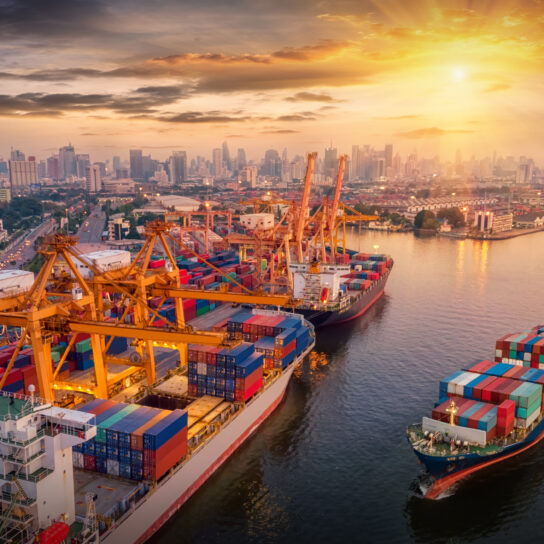
Free-trade agreements: not just a mechanism for more trade
This article was first published in May 2021 by Daily Cargo News.
Trade law expert Andrew Hudson argues that free-trade agreements are increasingly not just about trade, they also address societal issues, and this is a good thing.
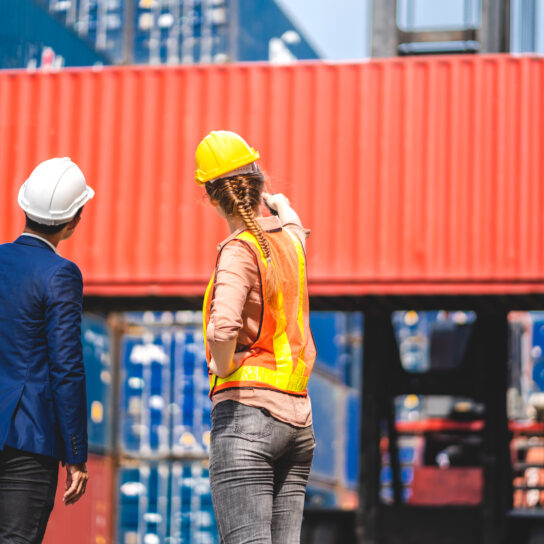
Federal Budget 2021-22: and some news for industry
The COVID–19 Pandemic has created many unusual outcomes. One of those was the delay of the May 2020 Australian Federal Budget until October 2020 which included a series of measures aimed at management of the economy in the face of the Pandemic and forecasting future deficits.

Beyond the pandemic – trade facilitation and supply chain questions
This article was first published in April 2021 by Daily Cargo News.
The world continues to struggle with the practical consequences of congestion in the supply chain and governments are initiating reviews into supply chain vulnerabilities and how they may be addressed. However, it remains important that we do not overlook other initiatives to facilitate trade which may have been stalled by the focus on the more immediate problems of the global pandemic.

Is this a medicament I see before me?
This article was first published in March 2021 by Daily Cargo News.
The tariff classification of goods is a crucial part of the international supply chain, as it applies to goods at the point of import and export and can affect a number of vital issues such as whether goods are allowed to be imported or exported at all, the duty payable at the point of import and whether dumping or countervailing duty is payable.

New “Ports Victoria” and other developments from the “Interim Government Response” to the Victorian Ports System review
The release of the “Interim Government Response” (Response) to the independent review of the Victorian Ports System Review (Review) on 26 February 2021 comes at a time when there is ongoing attention on the state, national and international supply chains.
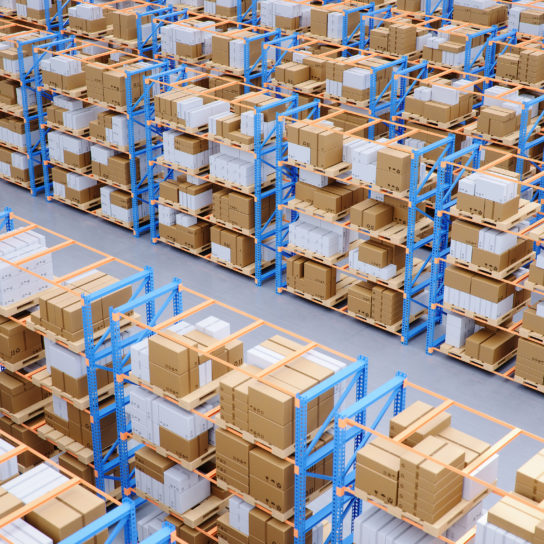
Productivity Commission review gives additional focus into the supply chain
On 19 February 2021, the Federal Treasurer requested the Productivity Commission (Commission) undertake an independent review (Review) “into supply chain vulnerabilities and risks” to “ensure that the Australian economy is prepared for “possible supply chain disruptions”.

Supply chain and regulation
This article was first published in February 2021 by Daily Cargo News.
Even as the world struggles with the health issues from the pandemic, those relying on the supply chain are facing a variety of problems, which collectively are creating additional delays, cost and uncertainty. None of these factors will assist with economic recovery, or the distribution of vaccines and other medical products being used to deal with the pandemic. Further, the economic benefits of a reduction in tariffs through Free Trade Agreements and other trade facilitation measures are being eroded by problems and costs in the supply chain.

Budget implications for trade
This article was first published in January 2021 by Daily Cargo News.
Back in October 2020, the federal government released its proposed budget for the 2020/2021 financial year. As usual, most of the details had been formally announced or “leaked” but it is worth paying attention to a few issues.

Trade complications with the EU
This article was first published in December 2020 by Daily Cargo News.
Just when we thought that the most complex thing affecting our trade relationship with the European Union (EU) was how Brexit was going to be effected and how the free trade agreement was going to be completed, other developments are quickly coming into play which may make the position even more complicated.
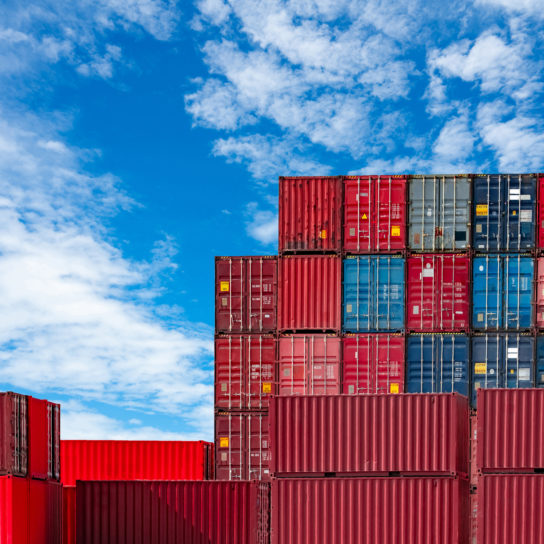
Customs tariff legislation introduced to Parliament
On 3 December 2020, the Government introduced a new Bill into the Federal Parliament known as the Customs Tariff Amendment (Incorporation of Proposals and Other Measures) Bill 2020 (Bill).
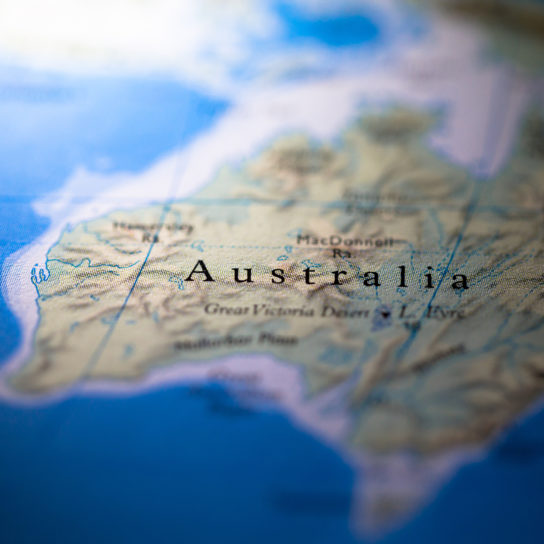
A new era for Australia’s sanctions regime
This article was first published in November 2020 by Daily Cargo News.
I was invited by the American Bar Association (ABA) to prepare a chapter on the Australian sanctions regime for inclusion in an ABA publication on comparative sanctions regimes. As I provide advice on sanctions to clients and have an interest in my capacity as a director of the Export Council of Australia, it was a pleasure to accept and spend some time trying to reduce the complex issues both in Australia and overseas.
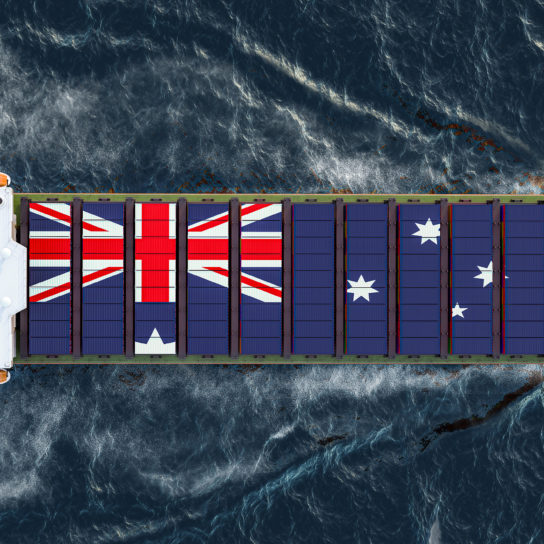
Comment: Australia joins RCEP – the big new deal comes over the horizon
This article was first published in November 2020 by Daily Cargo News.
Recent news on the international trade stage has been less than optimistic – especially for those Australian exporters who are held up by ongoing Chinese trade bans on some of our primary products and resources.
It appears to be a direct consequence of some diplomatic disagreements but, to date, falls short of a full trade war.
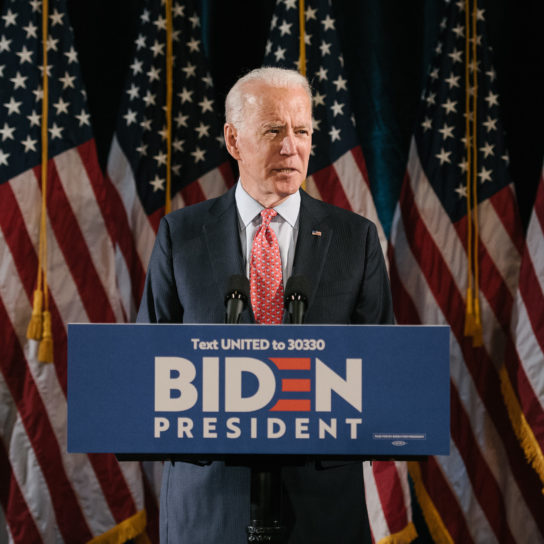
The possible Australian trade consequences from the US election result
According to most officials, we appear to have a winner in the United States (US) election with the announcement of the success of the Biden/Harris ticket.
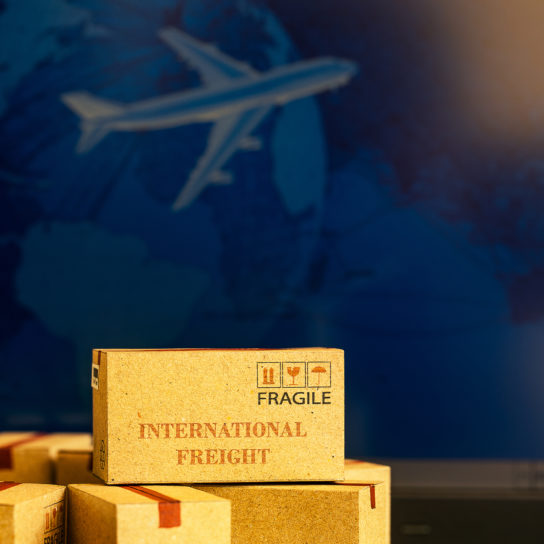
Resolving trade disputes in a troubled world
This article was first published in October 2020 by Daily Cargo News.
For many years, disputes on trade have led to actual warfare. “Send a gunboat”, was often cited as part of British foreign policy when trade was at risk. Think of the British and French Opium Wars with the Chinese Qing Dynasty which led to the opening of additional European jurisdiction over Chinese ports including Guangzhou and Shanghai and the concession over Hong Kong in favour of the British.
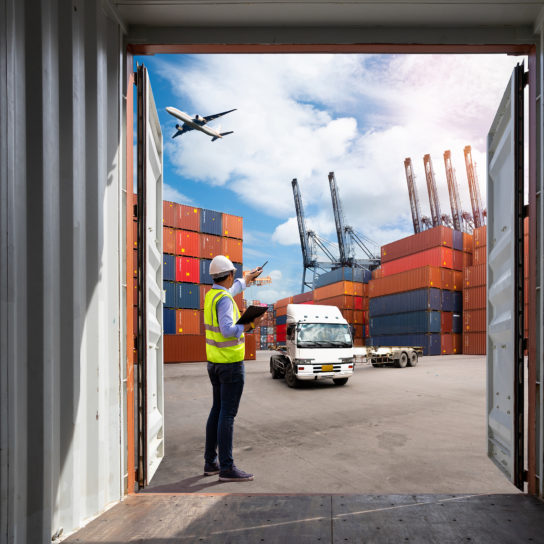
Federal Budget 2020 – some customs and trade issues
On Tuesday 6 October 2020, the Federal Government released its proposed budget for 2020-21, together with forward estimates of future receipts and expenses. As usual, most of the details had previously been formally announced or “leaked” previously but it is worth paying attention to a few issues. In doing so I have borrowed shamelessly from the exact words from the relevant budget text to ensure accuracy and only added additional commentary when the issue warrants that additional attention.

Comment: congestion and other charges choking trade at Port Botany
This article was first published in September 2020 by Daily Cargo News.
It seems counterintuitive but even as Australia struggles out of recession and pandemic, a number of lines have determined that the state of services through Port Botany, Sydney, require the imposition of an additional ‘congestion charge’ for a variety of reasons including the lack of overtime resulting from legally protected industrial action by stevedore employees at Port Botany.

Facilitating and regulating e–commerce
This article was first published in September 2020 by Daily Cargo News.
One of the stories from the COVID–19 pandemic has been the surging numbers of goods being moved through e-commerce. The forced levels of isolation have caused consumers and corporates to resort to purchasing even more goods than ever online seeking urgent delivery.
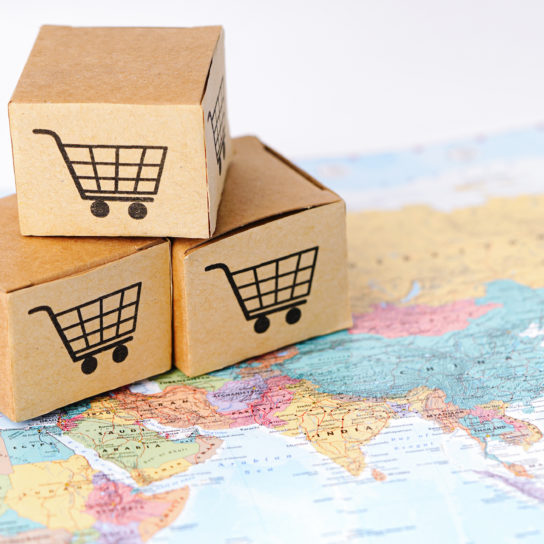
Comment: the Commonwealth moves to rein in agreements with foreign governments
This article was first published in August 2020 by Daily Cargo News.
The Australian Commonwealth Constitution (the Commonwealth) has an interesting history including its development through a series of Constitutional Conventions between the representative of state governments and other interested parties.
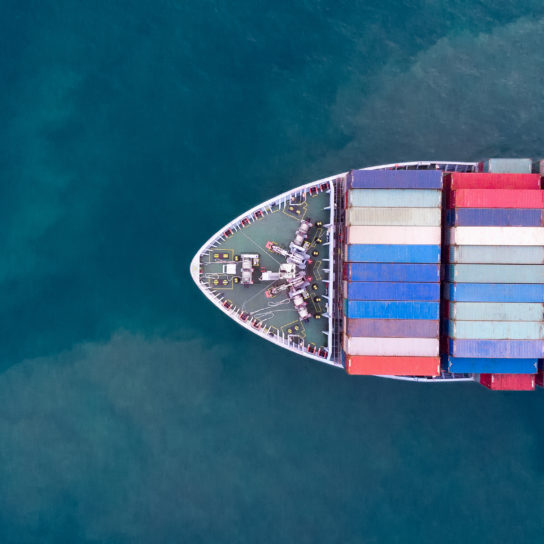
Licence to move freight
This article was first published in August 2020 by The Daily Cargo News.
In many countries, some participants in the private supply chain are licensed by government to undertake their roles.

Changes to support and control of medical treatment equipment at the border increase with COVID-19
This article was first published in August 2020 by AMT Magazine.
During the current pandemic, the focus of many has been on the manufacture of medical equipment required for the treatment of COVID-19 and their urgent movement through the international supply chain.
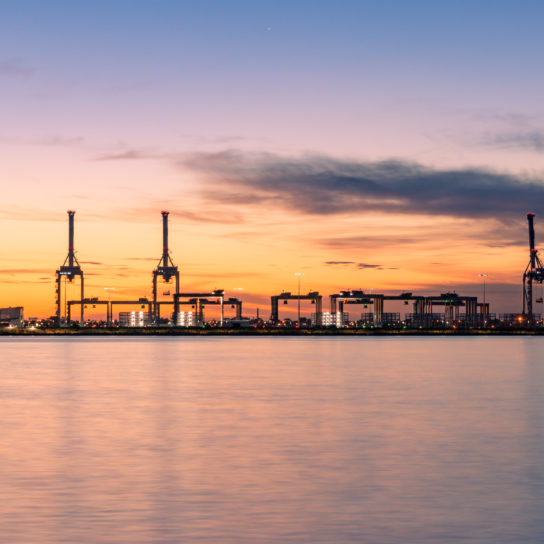
Victoria announces independent review of the operation of Victoria’s Ports
As an island nation, Australia has always relied heavily on its ports, their wharves and other facilities as well as the associated land–side infrastructure including rail and road access, stevedore operations and empty container parks. Much of the national and international supply chain relies on the efficient operation of the sector.

New Indonesian Free Trade deal up and running
This article was first published in July 2020 by The Daily Cargo News.
The Indonesia–Australia Comprehensive Economic Partnership Agreement is a positive development for the global free trade agenda writes Customs and Trade Partner, Andrew Hudson.
